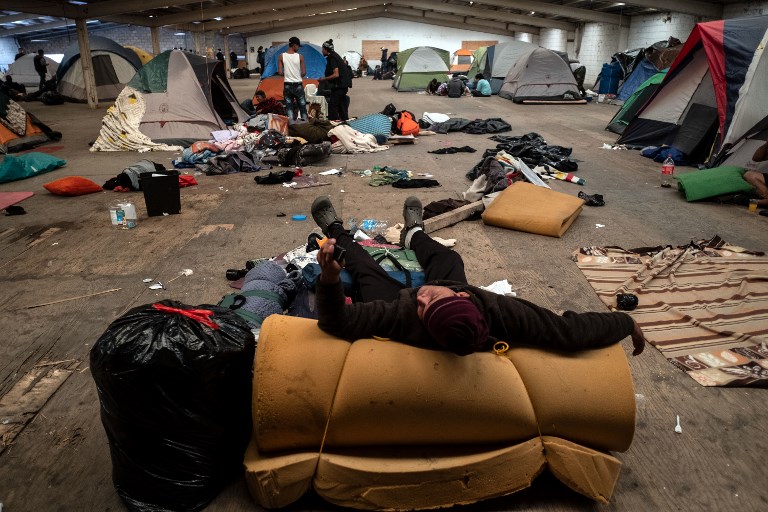
New government working on tightening migration policy
The Scandinavian country is following in the footsteps of Denmark in matters concerning migration, which is in the complete opposite approach to Germany's, where they are about to relax the regulations for granting citizenship.
Becoming Swedish citizen no longer so easy
The new right-wing Swedish government, with the help of a committee, is studying how to make the granting of Swedish citizenship to immigrants more stringent. Together with the Sweden Democrats, the governing parties agreed that they want to put an end to both the liberal immigration policy and the practically gift-like acquisition of citizenship. The main idea of the agreement is to convert the permanent residence permit into citizenship, Maria Malmer Stenergard, a representative of the right-wing Moderate Party, told the Svenska Dagbladet newspaper. At the same time, the minister responsible for migration issues added that a more stringent system of conditions than the current one must be established for this.
„The concept involves [applicants] receiving an individualised plan on how to achieve this. Learn the language, earn a living and learn about Swedish society in order to become a full Swedish citizen,”
the right-wing politician explained. The government is also investigating what should happen to those who already have permanent residence permits but cannot or do not want to become Swedish citizens. As she said,
„Of course we will not be satisfied with people just continuing to have an existing permanent residence permit, which was granted in many cases without any particularly clear conditions, if they then do not take the necessary next steps towards citizenship.”
The cabinet also wants to filter out those cases where an immigrant applies for asylum in Sweden, receives a residence permit, and then it turns out that he was not even eligible to be granted the status.
„We want to find a way for the migration agency to regularly reassess whether residency rights exist. The aim is to recall more residence permits, for example when a person claims asylum or other protection and then goes back to their country of origin on holiday,”
the minister said. As also reported by V4NA, the Swedish government recently announced a series of measures to eradicate the so-called shadow societies created by illegal immigrants in the country. According to the plans, stricter border controls, a new address verification system and a census would also be introduced in order to have accurate data on the population. According to the minister, border control should be restored to be able to track who is living in Sweden, since, as he noted, the country has long since lost control over who is arriving and/or staying in the country.
They are also considering stationing Swedish border guards at international airports and tightening address checks for asylum seekers. If migrants do not want to provide their address, there will be consequences, including the risk of having their asylum application withdrawn.
At least 100,000 people are estimated to be living illegally in Sweden. A census will be conducted in the country to update the relevant data, and the identification of migrants will be made easier by introducing biometric elements, such as facial recognition and fingerprinting, into the asylum process. Under the current plans, it may even take more time to become a Swedish citizen, with a requirement of a minimum of 8 years’ residence being on the table.
In Germany, citizenship may become a commodity
Sweden is following in the footsteps of Denmark, which years ago declared war on illegal migration and has taken tough measures to stop migrants choosing Denmark as a destination. Germany, on the other hand, has a very different vision for the future, with a federal government of Social Democrats, Greens and Liberals seeking to significantly lower the bar for granting citizenship.
The plan, backed by Social Democrat Interior Minister Nancy Faeser, is that there would no longer be a requirement to learn German in all cases, nor would immigrants have to renounce their former nationality. This mainly concerns those who arrived in Germany with the 2015 wave of migrants. Children already born on German soil automatically receive German documents, provided that the mother or father has been „legal habitual resident” in Germany for at least 5 years. This used to be 8 years, but now it is enough if one arrived in Germany in or before 2018.
The government is eager to introduce the new reform of the citizenship law as soon as possible, preferably before Christmas. Experts estimate that more than two million foreigners living in Germany will benefit from the reform.
It comes as little surprise that these changes have provoked strong criticism from the opposition. Thorsten Frei, member of the Christian Democratic Union (CDU), warns that German citizenship
„must not become a shoddy commodity. We already have a very attractive and liberal naturalisation law. German citizenship should be at the end of the integration process, not at the beginning,”
the CDU politician said, adding that the government’s plan is dangerous. The Alternative for Germany (AfD) party has also voice its opinion on the federal government’s draft. Jan Schiffers, spokesman for integration policy in the AfD parliamentary group in the Bavarian Landtag, said the government’s attempt
„devalues German citizenship and thus does not encourage foreigners to integrate. German citizenship is inextricably linked to our culture and language. It is completely the wrong approach to limit it to the length of stay in Germany. Only good integration and full respect for our laws can lead to German citizenship,”
the AfD politician said, adding that „as a party of the rule of law, we cannot accept that the government should treat our citizenship as a commodity.”

